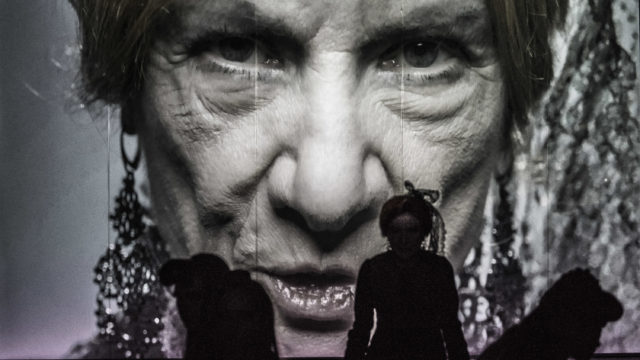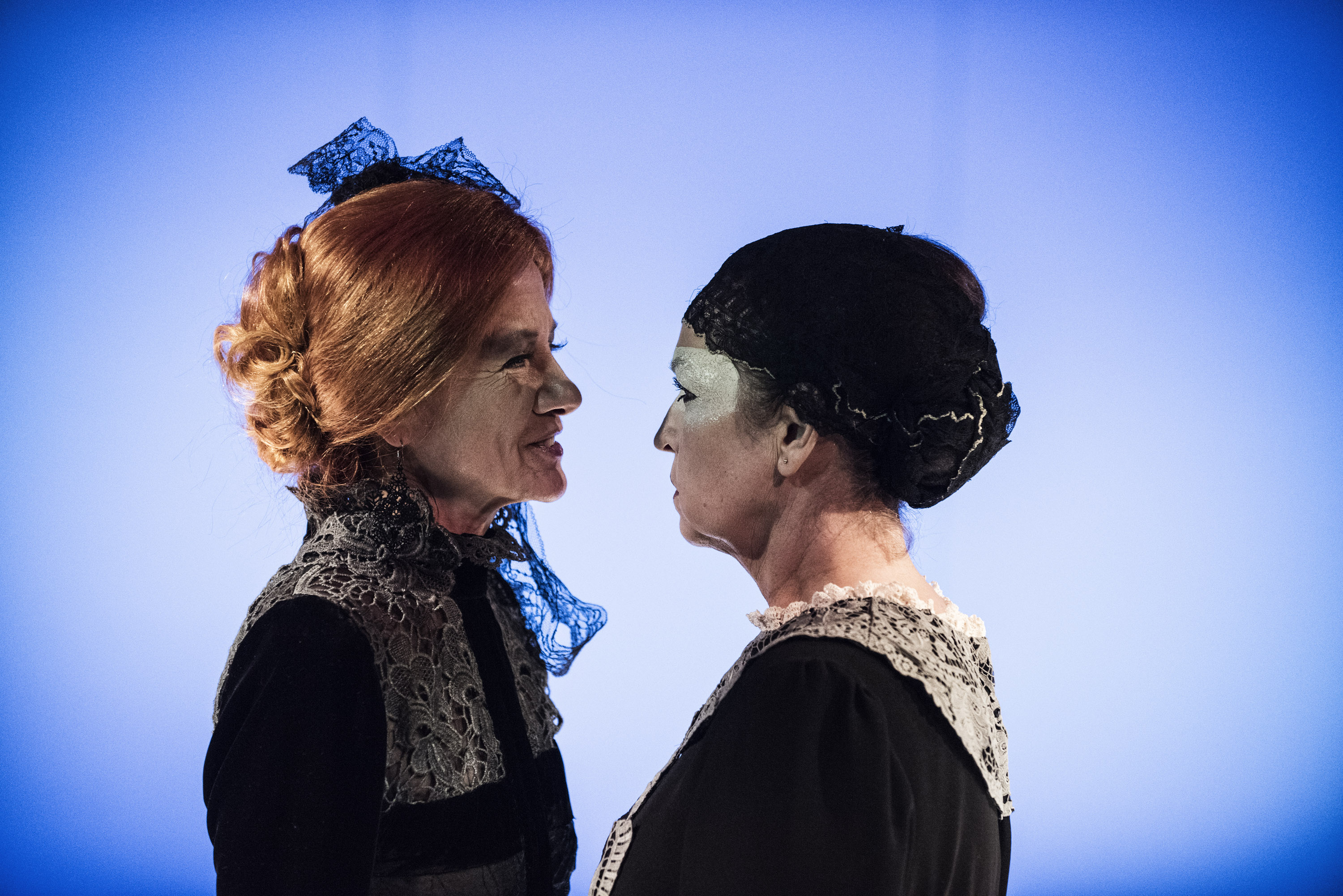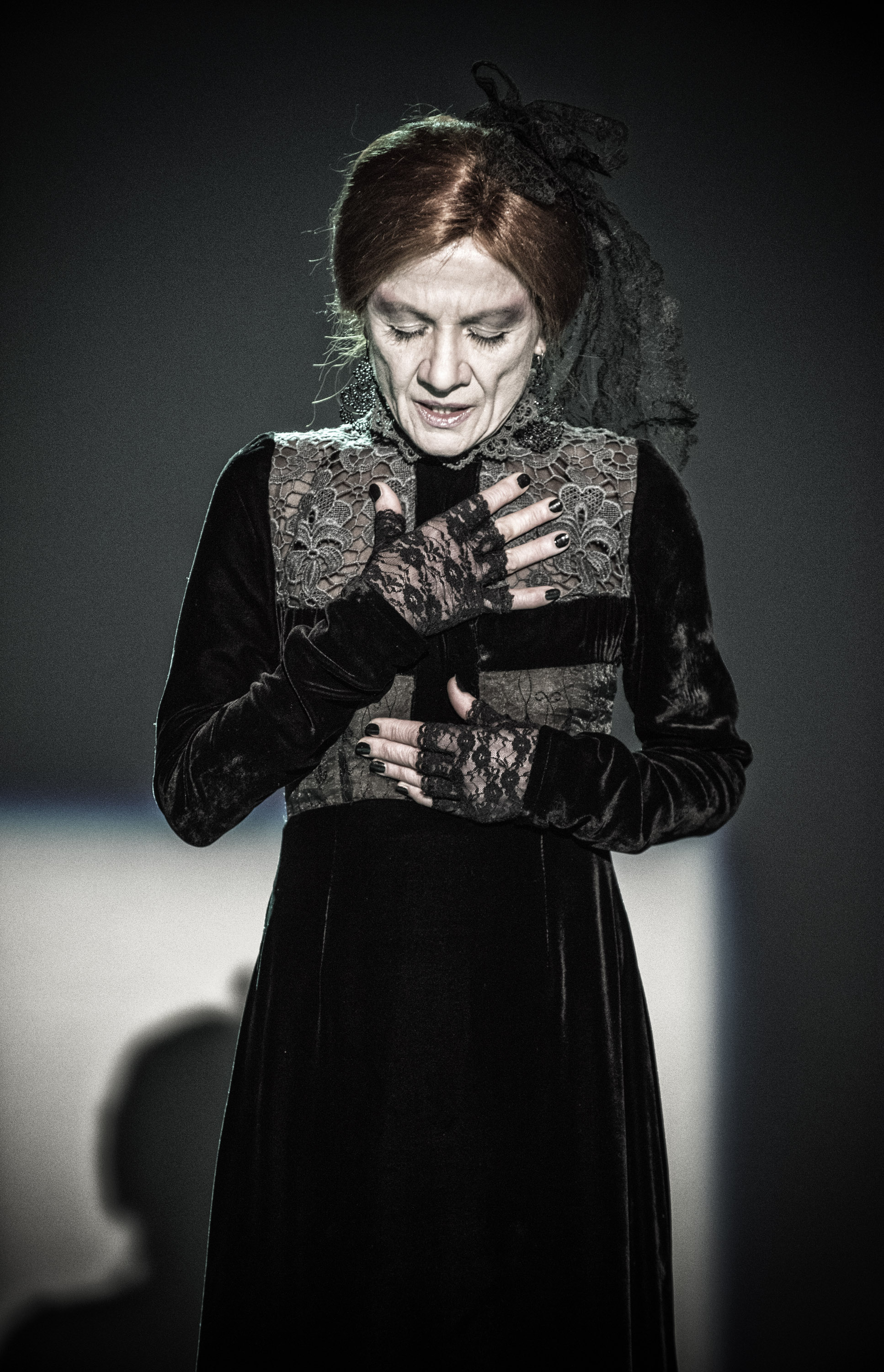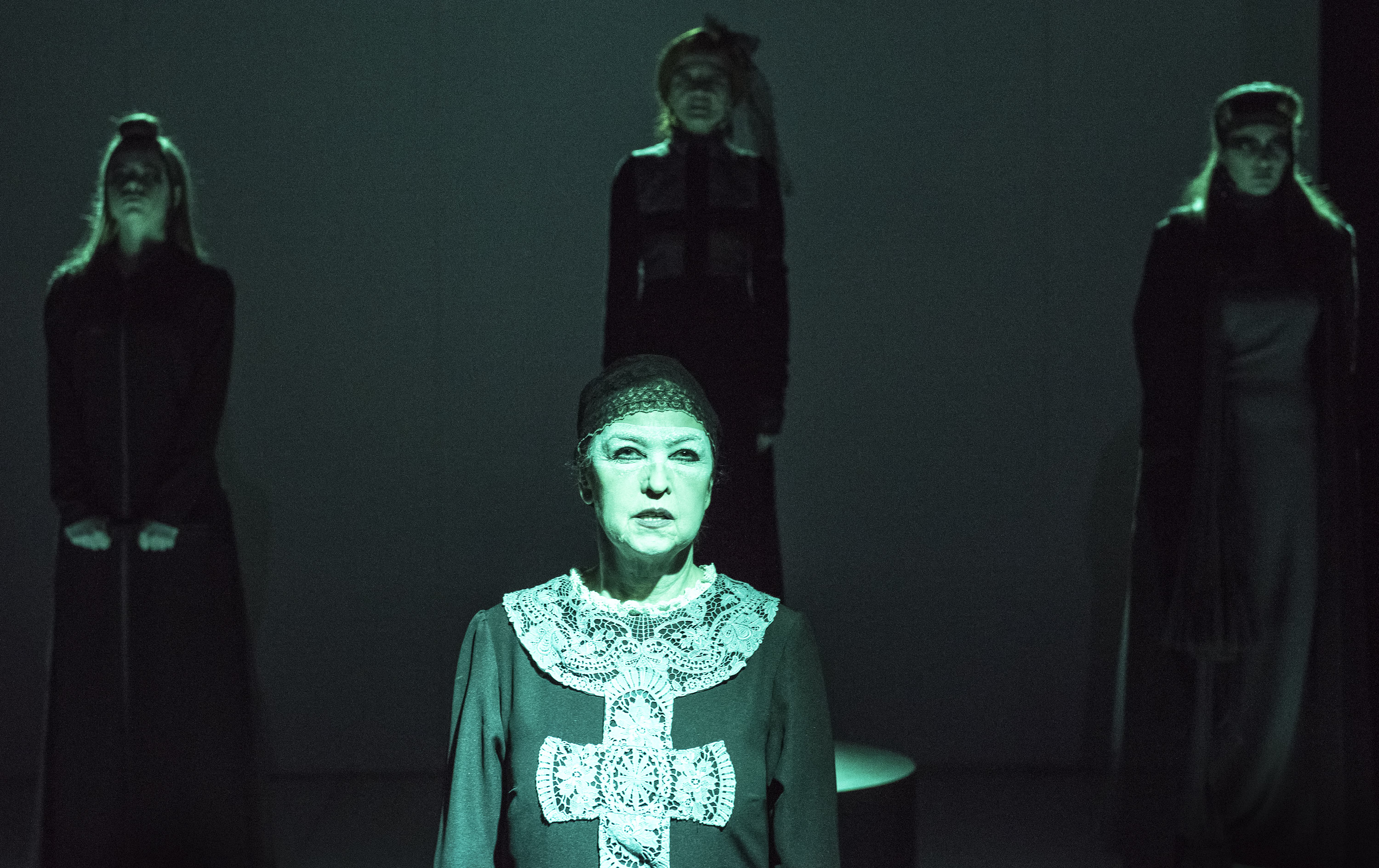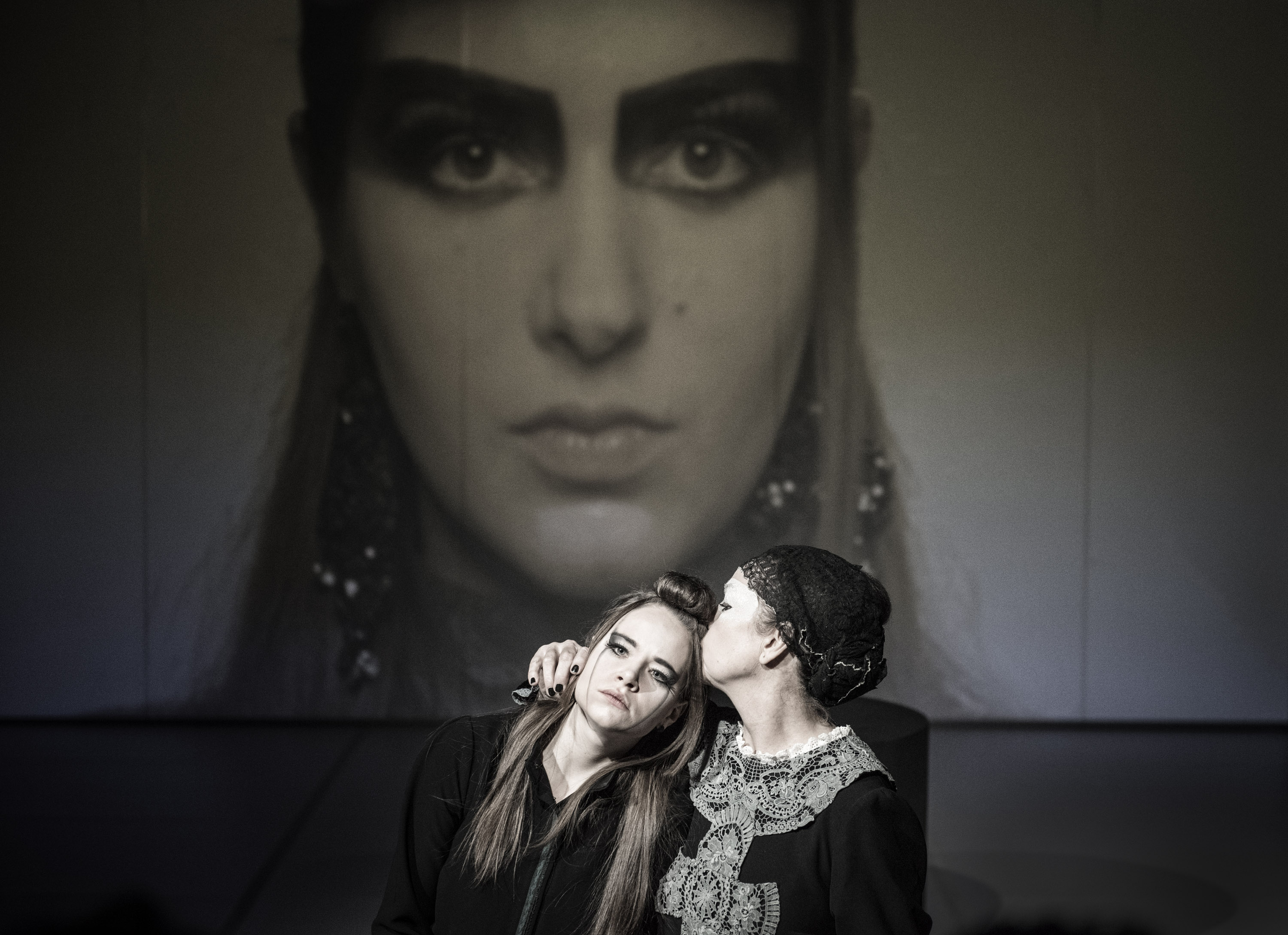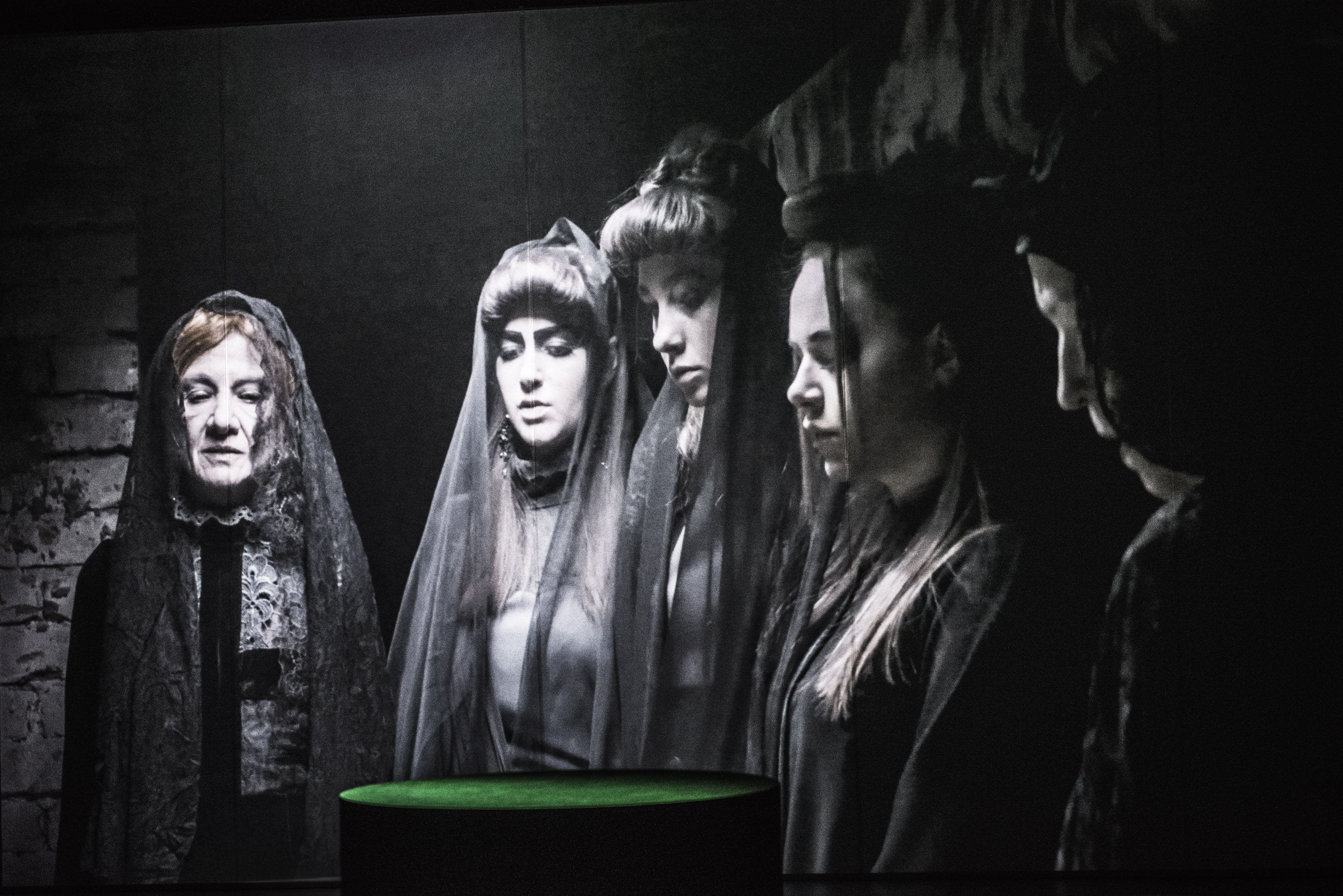Repertoire
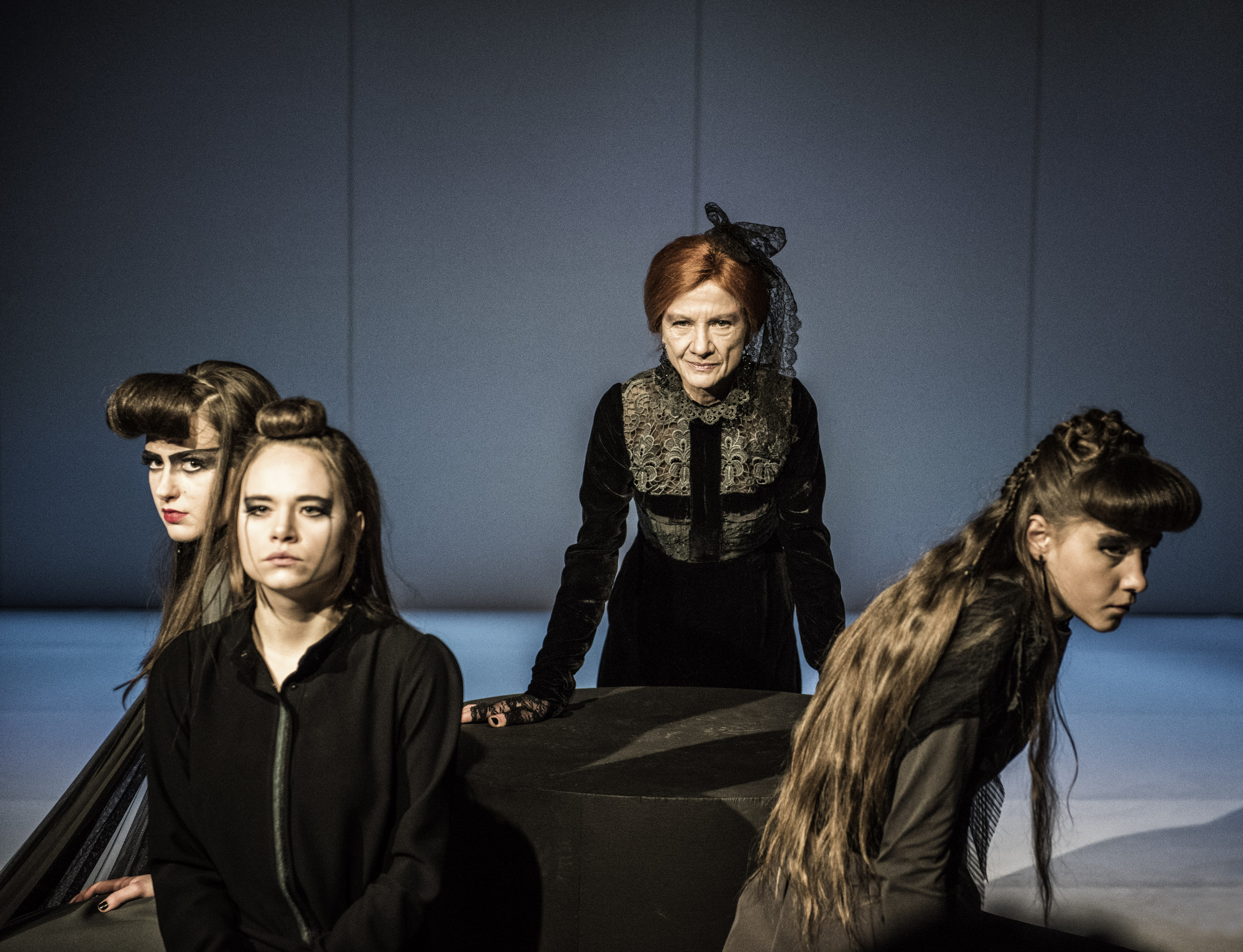
The House of Bernarda A.
ul. Jagiellońska 1
Premiere
date
2018
When we play
- 16.01
2018 - 17.01
2018 - 18.01
2018 - 20.01
2018 - 21.01
2018 - 14.02
2018 - 15.02
2018 - 16.02
2018 - 17.02
2018 - 18.02
2018 - 23.02
2018 - 24.03
2018 - 25.03
2018 - 27.03
2018 - 13.05
2018 - 15.05
2018 - 08.06
2018 - 09.06
2018 - 10.06
2018 - 15.11
2018 - 16.11
2018 - 17.11
2018 - 01.12
2018 - 02.12
2018 - 11.01
2019 - 12.01
2019 - 06.02
2019 - 07.02
2019 - 08.02
2019 - 30.03
2019 - 31.03
2019 - 23.11
2019 - 24.11
2019 - 23.04
2020 - 24.04
2020
Duration
In Alejandro Radawski’s The House of Bernarda A. we have no homey props to remind us of the family fireside. There are no soft armchairs or sentimental keepsakes, the windows are not decked in snow-white lace curtains. The only lace here pins tight the protagonists’ bodices – it stiffens the postures of the three daughters and the servant, bracing them tight under the throat, mimicking the hand of their despotic mother, Bernarda Alba (Ewa Kolasińska), who makes their home a ruthless prison. At the beginning a darkness swallows the empty stage; which four pedestals of various heights emerge, showing the home’s hierarchy, and further restricting the protagonists’ movement. The sense of being in a space where the only escape is death is enhanced by Marcin Koszałka’s projections, taking the viewer into the depths of the household’s moldering cellars, from which there is no escape.
The House of Bernarda Alba was written by Federico Garcia Lorca just before his death – the poet was murdered in August 1936, a month after the outbreak of the civil war in Spain. Ever since its premiere it has been considered a symbol of opposition to the tyranny of General Franco.
With this play I aim to show the lives of victims of oppression, carrying out their absurd and archaic family duties, products of the patriarchal system. It demonstrates the violence committed against women who are stripped of their voices and rights, treated like objects for sale and tools of reproduction. Lorca shows the oppression that female family members endure, though I believe this can be directly translated into other environments, into whole societies and countries. It is a universal problem I would like to address. Alejandro Radawski
Male/female stereotypes, the role of the woman in the hierarchy of the home, domestic violence, or a game with appearances – the play’s director has managed to give a universal appeal to this drama written by Lorca in the 1930s. Anna Małachowska, na Scenie
Cast
- Bernarda
- Adela
- Martirio
- Angustias
- Iwona Budner Poncja **
Creators
- Rubi Birden Translation
- Marcin Koszałka Lights Director / Video
- Mieczysław Mejza Music
- Hanna Nowak Stage manager / Prompter
